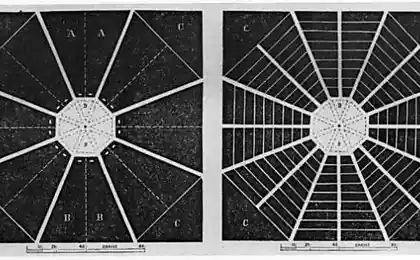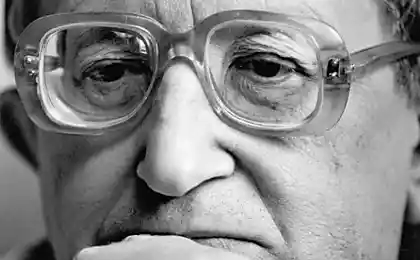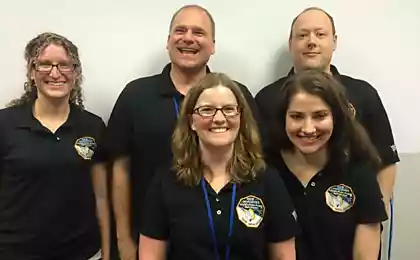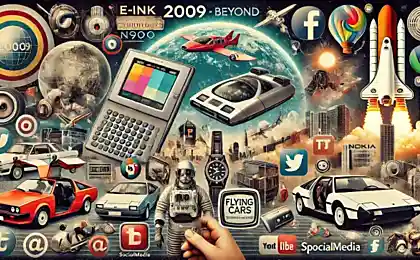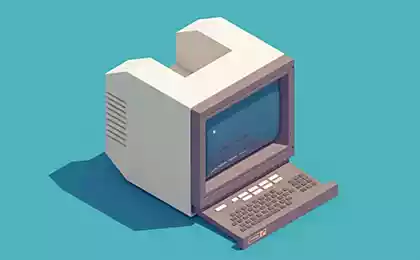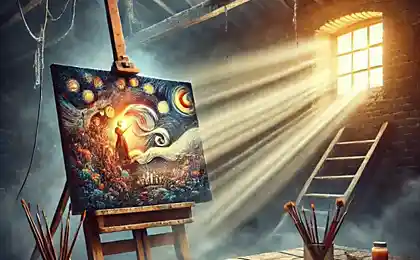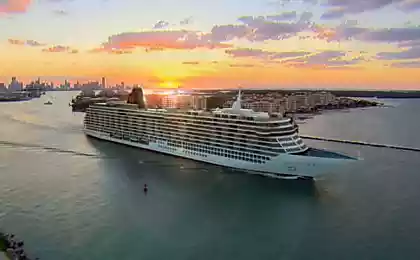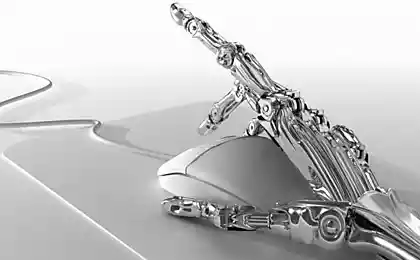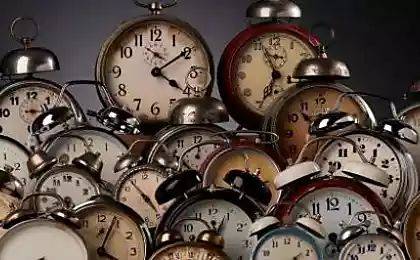556
Horizons of utopia: 10 the manifestos about the future
Sixty eight million one hundred fifty thousand six hundred seventy nine
© Kyle Bean
The Communist Manifesto
Karl Marx and Friedrich Engels, 1848 Manifesto of the Communist party — one of the most important political texts of our time, whose influence on the course of human history is difficult to overestimate. Written by Marx and Engels in 1848, he not only affects the principles, methods and challenges emerging at that time, the Communist organizations, but also establishes a conceptual basis of a future ideology. Marx and Engels were convinced that class struggle is the driving force behind the history of all existing communities will lead to social revolution and a new social order, capitalism will die at the hands of the proletariat, which should come in the Association of free individuals. Since the release of the document has been more than 160 years, communism had come and go from the arena of heated political battles, showing that revolution — not a universal way of achieving a wonderful future. But the pathos of the Manifesto is as relevant as ever — the vast majority of the planet still lives on in inequality, poverty and exploitation, and since then little has changed.
"In place of the old bourgeois society, with its classes and class antagonisms, we shall have an Association in which the free development of each is the condition for the free development of all" Manifesto 3 januarary sterling, 2000 To the beginning of the Millennium, the ideology of cyberpunk writer Bruce sterling has proposed a new cultural Manifesto based on the ideas of Viridian Design Movement. The color Viridian is a bluish-greenish hue — as opposed to natural green, the traditional color of environmental protection. The Manifesto proclaims a triumph of design, cultural industries and technological progress, as well as a General mobilization to fight global warming: it will be useful for social engineering, and the trials of climate criminals. Your text sterling adresovat above all a cultural elite, which should create all the conditions for the power of the poor to make caring about the environment luxury and class marker, to promote artificial food, and consumption of intangible goods. Although the movement officially ceased to exist in 2008, Paphos, their project seems not so utopian.
"After years of copying, assigning, releasing and vaistinese postmodern must end. And then after the end of the century will be instant and unquenchable thirst for a genuinely new" Manifesto, futurization Tomaso Marinetti, 1909 of the First Manifesto of futurism was published in the newspaper Le Figaro, in the form of paid ads on the first page. As in all subsequent manifestos and the works of the futurists, it was famous for the progress, speed and the destruction of old ideals. "Violence and precision" — this formula manifests brought Marinetti.
Later manifestos began to appear almost at every meeting of the circle of the futurists in Italy, Russia and other countries, a process often accompanied by arguments and fights. Futurists regularly released fresh versions of the texts, in order to keep the attention of the audience, threw off their manifestos with balconies, airplanes and moving vehicles. The Manifesto of 1909 — grandpa art manifestos: was soon followed by the policy documents of Dadaists, Surrealists, vorticists, constructivists and other groups. The authors of the early art manifestos believed that art can change the world, but the situation after the First world war was somewhat different.
"Beauty may only be in the fight. No work, devoid of aggressive character cannot be a masterpiece. Poetry should be seen as a violent attack on unknown forces" Food Manifesto budushego Bittman, 2011 Describing the modern American diet, conditions of animals and workers in food industry, columnist for the New York Times and cook mark Bittman makes a disappointing verdict: it's hard to imagine a more unstable and destructive system. The authorship of the first food belongs to the futurists Manifesto, which called for, among other things, to abandon the fork, knife and paste — it makes people depressed and passive, but Bittman everything very seriously. In order to make our lives more healthy, safe and productive, it offers several important steps. First, change the system of subsidies: financing the production of soybeans and corn, most of which goes for industrial purposes and small producers of real food. Second, to promote useful initiatives, such as home cooking, recycling, sustainable agriculture and food education for children and adults. Thirdly, the use of coercive methods: to tax the production and marketing of unhealthy food, obliged to write the truth on the labels.
"Food and everything connected with it play a crucial role in human health and society, national and international security. At stake is not only human health, but also the whole planet" Manifesto Russell — Einsteinian Russell, 1955 At the height of the cold war, British philosopher, mathematician and writer, Bertrand Russell issued an appeal to the leaders of Nations and all mankind, which described the danger of the use of nuclear weapons. The document was signed by 11 scientists who worked on the Manifesto Russell, Rotblat, Joliot-Curie, Einstein and sympathetic to their goals, born, Bridgman, Infeld, Muller, Pauling, Powell and Yukawa.
The Manifesto marked the beginning of the Pugwash scientists, in favour of peace, disarmament and scientific cooperation. Document the declared goal was partially achieved: over the last half century a new world war has not begun, and the question of nuclear disarmament is still on the agenda of the international community. But, on the other hand, local conflicts have not gone away, and the military budgets of the major countries is constantly growing. Therefore, today the Manifesto Russell — Einsten important as 60 years ago.
"Before us lies the path of continuous progress, of happiness, knowledge and wisdom. If we choose instead death just because can not forget our quarrels?" Manifesto of the Vancouver: the greenest city in the world by 2020 In the twenty-first century write manifestos and cities, for example Vancouver. According to the developed at the initiative of the mayor of Vancouver Gregor Robertson to the project, by 2020, every citizen will live within a 5-minute walk from the Park or the beach, secured access to healthy local food and clean water, but also to breathe the cleanest air on the planet. More than 50% of trips will be by foot, bike or using public transport, jobs in the green sector will be twice more, and all new buildings be carbon neutral and energy efficient. In addition, ecological footprint, greenhouse gas emissions and water consumption reduced by 33%. The initiators of the project regularly and in detail reported, how things are with its implementation. Manifesto of the Vancouver great example of how a local community took matters into their own hands, to prove that the future of the planet depends on us.
"The greenest city in the world will be full of life. Its inhabitants, healthy, happy and prosperous, will coexist on the principle of "one planet for all" to safely pass it on to future generations," the Declaration of freedom информацииCult of the dead cow, 2001, In its Manifesto, the group Hacktivismo, an offshoot of the hacker collective Cult of the Dead Cow, recalls that freedom of information is one of the fundamental human rights. Criticizing Internet censorship and repression by the state, she declares her determination to be a defender of freedom of speech and to develop technologies that would be able to resist the censorship of information on the Internet. Restriction of access to information entails intellectual, spiritual, and economic downturn, the wave of xenophobia and destabilization of international order.
This is not the first text of this kind. "Manifesto hacker" appeared in 1986, but the Hacktivismo Declaration is the main document addressing the difficult the future of the Internet. Since its writing it has been 12 years, and given the recent scandals with the NSA, Wikileaks Anonymus and his prophetic essence manifests itself more and more.
"State censorship of the Internet is a serious form of organized and systematic violence against citizens, undermining trust" Manifesto, Biokosma. Svyatogor, 1922 Russian biochemist appeared in the 20-ies of the twentieth century as a literary movement and later the anarchist faction. Biochemisty thought of individual immortality is the highest goal of the state, and the abolition of private property is impossible without the abolition of private time. They believed that basic human right is the right to immortality and to freedom of movement in outer space, in opposition to the worldly bourgeois values. The movement is closely related to cosmism, the representatives of which were the founder of Soviet cosmonautics Tsiolkovsky, Chizhevsky, biophysicist and founder of the doctrine about biosphere Vernadsky. Biochemism was the forerunner of transhumanism, whose members, though to move beyond the modern understanding of "human" with the help of new technologies. Especially true Manifesto sounds in the background of the latest news from Google, announced the launch of Calico, aimed to maximize the duration of human life.
"We are very clearly defined and relevant, and we are too few, even of the four moods. Hundreds of inclinations! We need the inclination of space and inclination of immortality!" Manifest tiberghien, Haraway, 1985 Despite the proximity to science fiction, essay "a cyborg Manifesto: science, technology and socialist feminism in the late 20th century" examines quite the problem — the future of the gender angle essentialism and naturalism. According to American biologist and philosopher Donna Haraway, as a result of contemporary social and technological transformations we can no longer perceive ourselves as human beings. With irony she assesses our contemporary being and believes that people would be far better to proclaim himself a cyborg. In particular, it could address fundamental questions of feminism. In this world of Homo Cyborg, no gender differences, moreover, the boundaries between man and animal, human-animal and machine, material and immaterial. When they revised the traditional idea of what a people and binary oppositions of humanism overcome, reign of justice and mutual respect, without conflict and contradictions.
"This is a dream not of a common language, and of the mighty atheist raznorechivy...I'd rather be a cyborg than a goddess," the Manifesto of the new образованияSkillhare, 2012 "the Future belongs to the curious" — sure the creators Skillshare, an online community for the exchange of knowledge. According to their plan, every person on the planet should be able to learn anything, anywhere, at any age, and at an affordable price. Criticizing standardisierung traditional education, they argue that in learning there is no single correct road. These achievements are not successfully passed the test or received the degree, and the fact that you created — for example, the first baked you a pie. One of the key ideas of the new education and learning — "Learn by Doing": learn through communication with other students, on their own actions and mistakes. But that's not all — everyone has something to learn from the other, and therefore we are all teachers, and the best of teachers just ask the right questions. When people learn all their lives, they will never graduate, and if everyone will share their knowledge, our world would be much better. published
http://player.vimeo.com/video/34853044?title=0&byline=0&portrait=0&color=ff005a
Source: theoryandpractice.ru
© Kyle Bean
The Communist Manifesto
Karl Marx and Friedrich Engels, 1848 Manifesto of the Communist party — one of the most important political texts of our time, whose influence on the course of human history is difficult to overestimate. Written by Marx and Engels in 1848, he not only affects the principles, methods and challenges emerging at that time, the Communist organizations, but also establishes a conceptual basis of a future ideology. Marx and Engels were convinced that class struggle is the driving force behind the history of all existing communities will lead to social revolution and a new social order, capitalism will die at the hands of the proletariat, which should come in the Association of free individuals. Since the release of the document has been more than 160 years, communism had come and go from the arena of heated political battles, showing that revolution — not a universal way of achieving a wonderful future. But the pathos of the Manifesto is as relevant as ever — the vast majority of the planet still lives on in inequality, poverty and exploitation, and since then little has changed.
"In place of the old bourgeois society, with its classes and class antagonisms, we shall have an Association in which the free development of each is the condition for the free development of all" Manifesto 3 januarary sterling, 2000 To the beginning of the Millennium, the ideology of cyberpunk writer Bruce sterling has proposed a new cultural Manifesto based on the ideas of Viridian Design Movement. The color Viridian is a bluish-greenish hue — as opposed to natural green, the traditional color of environmental protection. The Manifesto proclaims a triumph of design, cultural industries and technological progress, as well as a General mobilization to fight global warming: it will be useful for social engineering, and the trials of climate criminals. Your text sterling adresovat above all a cultural elite, which should create all the conditions for the power of the poor to make caring about the environment luxury and class marker, to promote artificial food, and consumption of intangible goods. Although the movement officially ceased to exist in 2008, Paphos, their project seems not so utopian.
"After years of copying, assigning, releasing and vaistinese postmodern must end. And then after the end of the century will be instant and unquenchable thirst for a genuinely new" Manifesto, futurization Tomaso Marinetti, 1909 of the First Manifesto of futurism was published in the newspaper Le Figaro, in the form of paid ads on the first page. As in all subsequent manifestos and the works of the futurists, it was famous for the progress, speed and the destruction of old ideals. "Violence and precision" — this formula manifests brought Marinetti.
Later manifestos began to appear almost at every meeting of the circle of the futurists in Italy, Russia and other countries, a process often accompanied by arguments and fights. Futurists regularly released fresh versions of the texts, in order to keep the attention of the audience, threw off their manifestos with balconies, airplanes and moving vehicles. The Manifesto of 1909 — grandpa art manifestos: was soon followed by the policy documents of Dadaists, Surrealists, vorticists, constructivists and other groups. The authors of the early art manifestos believed that art can change the world, but the situation after the First world war was somewhat different.
"Beauty may only be in the fight. No work, devoid of aggressive character cannot be a masterpiece. Poetry should be seen as a violent attack on unknown forces" Food Manifesto budushego Bittman, 2011 Describing the modern American diet, conditions of animals and workers in food industry, columnist for the New York Times and cook mark Bittman makes a disappointing verdict: it's hard to imagine a more unstable and destructive system. The authorship of the first food belongs to the futurists Manifesto, which called for, among other things, to abandon the fork, knife and paste — it makes people depressed and passive, but Bittman everything very seriously. In order to make our lives more healthy, safe and productive, it offers several important steps. First, change the system of subsidies: financing the production of soybeans and corn, most of which goes for industrial purposes and small producers of real food. Second, to promote useful initiatives, such as home cooking, recycling, sustainable agriculture and food education for children and adults. Thirdly, the use of coercive methods: to tax the production and marketing of unhealthy food, obliged to write the truth on the labels.
"Food and everything connected with it play a crucial role in human health and society, national and international security. At stake is not only human health, but also the whole planet" Manifesto Russell — Einsteinian Russell, 1955 At the height of the cold war, British philosopher, mathematician and writer, Bertrand Russell issued an appeal to the leaders of Nations and all mankind, which described the danger of the use of nuclear weapons. The document was signed by 11 scientists who worked on the Manifesto Russell, Rotblat, Joliot-Curie, Einstein and sympathetic to their goals, born, Bridgman, Infeld, Muller, Pauling, Powell and Yukawa.
The Manifesto marked the beginning of the Pugwash scientists, in favour of peace, disarmament and scientific cooperation. Document the declared goal was partially achieved: over the last half century a new world war has not begun, and the question of nuclear disarmament is still on the agenda of the international community. But, on the other hand, local conflicts have not gone away, and the military budgets of the major countries is constantly growing. Therefore, today the Manifesto Russell — Einsten important as 60 years ago.
"Before us lies the path of continuous progress, of happiness, knowledge and wisdom. If we choose instead death just because can not forget our quarrels?" Manifesto of the Vancouver: the greenest city in the world by 2020 In the twenty-first century write manifestos and cities, for example Vancouver. According to the developed at the initiative of the mayor of Vancouver Gregor Robertson to the project, by 2020, every citizen will live within a 5-minute walk from the Park or the beach, secured access to healthy local food and clean water, but also to breathe the cleanest air on the planet. More than 50% of trips will be by foot, bike or using public transport, jobs in the green sector will be twice more, and all new buildings be carbon neutral and energy efficient. In addition, ecological footprint, greenhouse gas emissions and water consumption reduced by 33%. The initiators of the project regularly and in detail reported, how things are with its implementation. Manifesto of the Vancouver great example of how a local community took matters into their own hands, to prove that the future of the planet depends on us.
"The greenest city in the world will be full of life. Its inhabitants, healthy, happy and prosperous, will coexist on the principle of "one planet for all" to safely pass it on to future generations," the Declaration of freedom информацииCult of the dead cow, 2001, In its Manifesto, the group Hacktivismo, an offshoot of the hacker collective Cult of the Dead Cow, recalls that freedom of information is one of the fundamental human rights. Criticizing Internet censorship and repression by the state, she declares her determination to be a defender of freedom of speech and to develop technologies that would be able to resist the censorship of information on the Internet. Restriction of access to information entails intellectual, spiritual, and economic downturn, the wave of xenophobia and destabilization of international order.
This is not the first text of this kind. "Manifesto hacker" appeared in 1986, but the Hacktivismo Declaration is the main document addressing the difficult the future of the Internet. Since its writing it has been 12 years, and given the recent scandals with the NSA, Wikileaks Anonymus and his prophetic essence manifests itself more and more.
"State censorship of the Internet is a serious form of organized and systematic violence against citizens, undermining trust" Manifesto, Biokosma. Svyatogor, 1922 Russian biochemist appeared in the 20-ies of the twentieth century as a literary movement and later the anarchist faction. Biochemisty thought of individual immortality is the highest goal of the state, and the abolition of private property is impossible without the abolition of private time. They believed that basic human right is the right to immortality and to freedom of movement in outer space, in opposition to the worldly bourgeois values. The movement is closely related to cosmism, the representatives of which were the founder of Soviet cosmonautics Tsiolkovsky, Chizhevsky, biophysicist and founder of the doctrine about biosphere Vernadsky. Biochemism was the forerunner of transhumanism, whose members, though to move beyond the modern understanding of "human" with the help of new technologies. Especially true Manifesto sounds in the background of the latest news from Google, announced the launch of Calico, aimed to maximize the duration of human life.
"We are very clearly defined and relevant, and we are too few, even of the four moods. Hundreds of inclinations! We need the inclination of space and inclination of immortality!" Manifest tiberghien, Haraway, 1985 Despite the proximity to science fiction, essay "a cyborg Manifesto: science, technology and socialist feminism in the late 20th century" examines quite the problem — the future of the gender angle essentialism and naturalism. According to American biologist and philosopher Donna Haraway, as a result of contemporary social and technological transformations we can no longer perceive ourselves as human beings. With irony she assesses our contemporary being and believes that people would be far better to proclaim himself a cyborg. In particular, it could address fundamental questions of feminism. In this world of Homo Cyborg, no gender differences, moreover, the boundaries between man and animal, human-animal and machine, material and immaterial. When they revised the traditional idea of what a people and binary oppositions of humanism overcome, reign of justice and mutual respect, without conflict and contradictions.
"This is a dream not of a common language, and of the mighty atheist raznorechivy...I'd rather be a cyborg than a goddess," the Manifesto of the new образованияSkillhare, 2012 "the Future belongs to the curious" — sure the creators Skillshare, an online community for the exchange of knowledge. According to their plan, every person on the planet should be able to learn anything, anywhere, at any age, and at an affordable price. Criticizing standardisierung traditional education, they argue that in learning there is no single correct road. These achievements are not successfully passed the test or received the degree, and the fact that you created — for example, the first baked you a pie. One of the key ideas of the new education and learning — "Learn by Doing": learn through communication with other students, on their own actions and mistakes. But that's not all — everyone has something to learn from the other, and therefore we are all teachers, and the best of teachers just ask the right questions. When people learn all their lives, they will never graduate, and if everyone will share their knowledge, our world would be much better. published
http://player.vimeo.com/video/34853044?title=0&byline=0&portrait=0&color=ff005a
Source: theoryandpractice.ru
Mixed planting in Your garden for pest control without chemicals
Amazing mechanical sculpture of a horse from Adrian Landon

